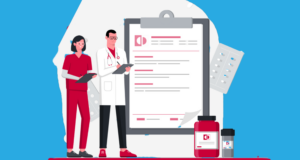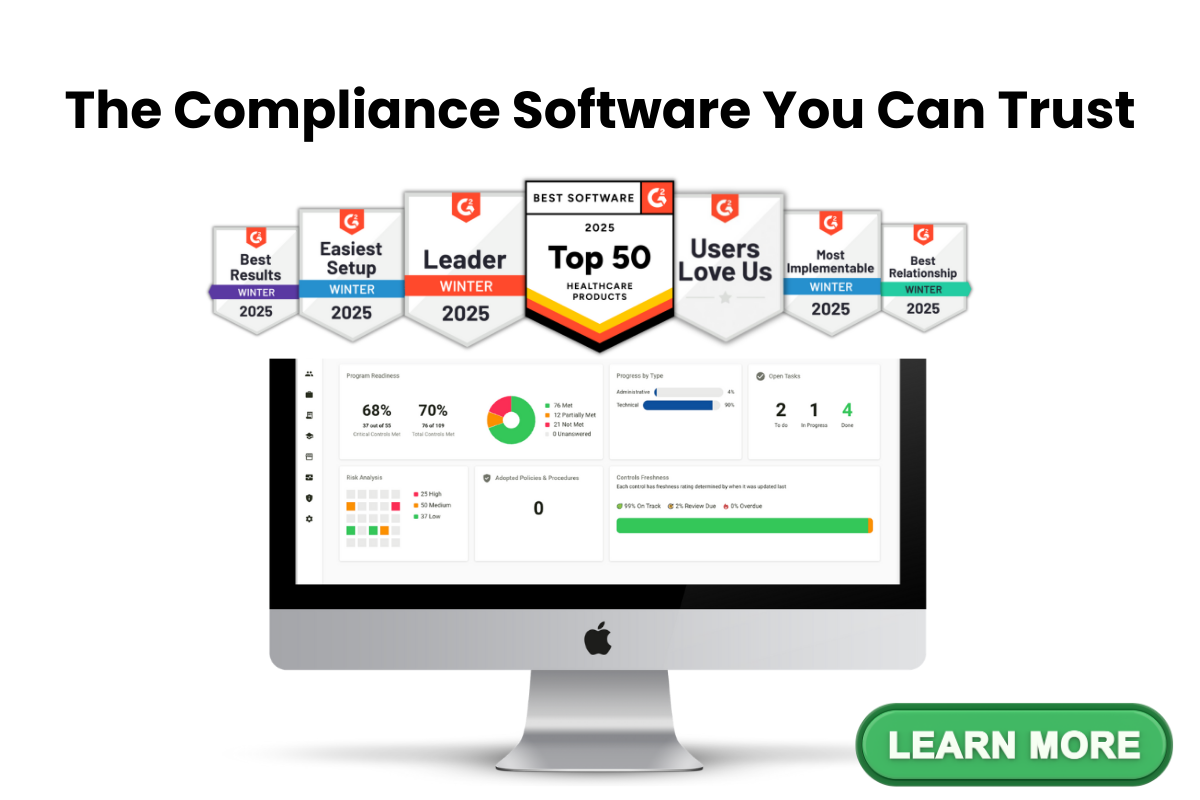Use and Disclosure of PHI
The HIPAA Privacy Rule regulates use and disclosure of PHI.
When Does the HIPAA Privacy Rule Require Use and Disclosure of PHI?
Under the HIPAA Privacy Rule, a covered entity must disclose protected health information in only two situations: (a) to individuals (or their personal representatives) specifically when they request access to, or an accounting of disclosures of, their protected health information; and (b) to the Department of Health and Human Services (HHS) when it is undertaking a compliance investigation, review, or enforcement action.
Under the HIPAA Privacy Rule, a covered entity must disclose protected health information in only two situations: (a) to individuals (or their personal representatives) specifically when they request access to, or an accounting of disclosures of, their protected health information; and (b) to the Department of Health and Human Services (HHS) when it is undertaking a compliance investigation, review, or enforcement action.
Under the HIPAA Privacy Rule, What Is Permitted Use and Disclosure of PHI?
A covered entity is permitted, but not required, to use and disclose protected health information, without an individual’s authorization, for the following purposes or situations:
To the Individual (unless required for access or accounting of disclosures):
A covered entity may be permitted to disclose protected health information to the individual who is the subject of the information.
Treatment, Payment, and Healthcare Operations:
- Treatment is the provision, coordination, or management of healthcare and related services for an individual by a health care provider.
- Payment encompasses activities of a health plan to obtain premiums, determine or fulfill responsibilities for coverage and provision of benefits, and furnish or obtain reimbursement for health care delivered to an individual. Payment also includes activities of a health care provider to obtain payment or be reimbursed for the provision of health care to an individual.
- Health care operations are any of the following activities:
- Quality assessment and improvement activities, including case management and care coordination;
- Competency assurance activities, including provider or health plan performance evaluation, credentialing, and accreditation;
- Conducting or arranging for medical reviews, audits, or legal services, including fraud and abuse detection and compliance programs;
- Specified insurance functions, such as underwriting, risk rating, and reinsuring risk;
- Business planning, development, management, and administration; and
- Business management and general administrative activities of the entity, including but not limited to:
- De-identifying protected health information (removing specific information about a patient that can be used alone or in combination with other information to identify that patient);
- Creating a limited data set (identifiable healthcare information that covered entities are permitted to share with certain entities for research purposes, public health activities, and healthcare operations, without obtaining prior patient written authorization); and
- Certain fundraising for the benefit of the covered entity.
Note that most uses and disclosures of psychotherapy notes for treatment, payment, and health care operations purposes require an authorization. Obtaining “consent” (written permission from individuals to use and disclose their protected health information for treatment, payment, and health care operations) is optional under the Privacy Rule for all covered entities. The content of a consent form, and the process for obtaining consent, are at the discretion of the covered entity electing to seek consent.
Use and Disclosure of PHI to which an Individual Has an Opportunity to Agree or Object:
Informal permission may be obtained by asking the individual outright, or by circumstances that clearly give the individual the opportunity to agree, acquiesce, or object. Where the individual is incapacitated, in an emergency situation, or not available, covered entities generally may use and disclose PHI, if in the exercise of their professional judgment, the use or disclosure is determined to be in the best interests of the individual. Uses or disclosures to which an individual has an opportunity to agree or object include:
- Facility Directories. Many health care facilities, such as hospitals, to maintain a directory of patient contact information. A covered health care provider may rely on an individual’s informal permission to list in its facility directory the individual’s name, general condition, religious affiliation, and location in the provider’s facility. The provider may then disclose the individual’s condition and location in the facility to anyone asking for the individual by name, and also may disclose religious affiliation to clergy. Members of the clergy are not required to ask for the individual by name when inquiring about patient religious affiliation.
- For Notification and Other Purposes. A covered entity also may rely on an individual’s informal permission to disclose to the individual’s family, relatives, or friends, or to other persons whom the individual identifies, protected health information directly relevant to that person’s involvement in the individual’s care or payment for care. A covered entity may rely on an individual’s informal permission to use or disclose protected health information for the purpose of notifying (including identifying or locating) family members, personal representatives, or others responsible for the individual’s care of the individual’s location, general condition, or death.
Uses or Disclosures Incident to an Otherwise Permitted Use or Disclosure:
The Privacy Rule does not require that every risk of an incidental use or disclosure of protected health information be eliminated. A use or disclosure of this information that occurs as a result of, or as “incident to,” an otherwise permitted use or disclosure is permitted as long as the covered entity has adopted reasonable safeguards as required by the Privacy Rule, and the information being shared was limited to the “minimum necessary,” as required by the Privacy Rule.
Public Interest and Benefit Activities:
The Privacy Rule permits use and disclosure of protected health information, without an individual’s authorization or permission, for public interest purposes, and for benefit activity purposes. PHI may be disclosed:
- When Required by Law. Covered entities may use and disclose protected health information without individual authorization as required by law (including by statute, regulation, or court orders).
- When Needed for Public Health Activities. Covered entities may disclose protected health information to:
- Public health authorities authorized by law to collect or receive such information for preventing or controlling disease, injury, or disability.
- Public health or other government authorities authorized to receive reports of child abuse and neglect.
- Employers, regarding employees, when requested by employers, for information concerning a work-related illness or injury or workplace related medical surveillance, because such information is needed by the employer to comply with the Occupational Safety and Health Administration (OHSA), the Mine Safety and Health Administration (MHSA), or similar state law.
- For Reporting of Abuse, Neglect or Domestic Violence. In certain circumstances, covered entities may disclose protected health information to appropriate government authorities regarding victims of abuse, neglect, or domestic violence.
- For Health Oversight Activities. Covered entities may disclose protected health information to health oversight agencies for purposes of legally authorized health oversight activities, such as audits and investigations necessary for oversight of the health care system and government benefit programs.
- For Judicial and Administrative Proceedings. Covered entities may disclose protected health information in a judicial or administrative proceeding if the request for the information is through an order from a court or administrative tribunal. Such information may also be disclosed in response to a subpoena or other lawful process if certain assurances regarding notice to the individual or a protective order are provided.
- For Law Enforcement Purposes. Covered entities may disclose protected health information to law enforcement officials for law enforcement purposes under the following six circumstances, and subject to specified conditions:
- As required by law (including court orders, court-ordered warrants, subpoenas) and administrative requests;
- To identify or locate a suspect, fugitive, material witness, or missing person;
- In response to a law enforcement official’s request for information about a victim or suspected victim of a crime;
- To alert law enforcement of a person’s death, if the covered entity suspects that criminal activity caused the death;
- When a covered entity believes that protected health information is evidence of a crime that occurred on its premises; and
- By a covered health care provider in a medical emergency not occurring on its premises, when necessary to inform law enforcement about the commission and nature of a crime, the location of the crime or crime victims, and the perpetrator of the crime.
- In certain circumstances pertaining to deceased individuals. Covered entities may disclose protected health information to funeral directors as needed, and to coroners or medical examiners to identify a deceased person, determine the cause of death, and perform other functions authorized by law.
- Cadaveric Organ, Eye, or Tissue Donation. Covered entities may use or disclose protected health information to facilitate the donation and transplantation of cadaveric organs, eyes, and tissue.
- Research. “Research” is any systematic investigation designed to develop or contribute to generalizable knowledge. The Privacy Rule permits a covered entity to use and disclose protected health information for research purposes, without an individual’s authorization, provided the covered entity obtains either:
- Documentation that an alteration or waiver of individuals’ authorization for the use or disclosure of protected health information about them for research purposes has been approved by an Institutional Review Board or Privacy Board; or
- Representations from the researcher that the use or disclosure of the protected health information is solely to prepare a research protocol or for similar purpose preparatory to research, that the researcher will not remove any protected health information from the covered entity, and that protected health information for which access is sought is necessary for the research; or
- Representations from the researcher that the use or disclosure sought is solely for research on the protected health information of decedents, that the protected health information sought is necessary for the research, and, at the request of the covered entity, documentation of the death of the individuals about whom information is sought.
- When There is a Serious Threat to Health or Safety. Covered entities may disclose protected health information that they believe is necessary to prevent or lessen a serious and imminent threat to a person or the public, when such disclosure is made to someone they believe can prevent or lessen the threat (including the target of the threat). Covered entities may also disclose to law enforcement if the information is needed to identify or apprehend an escapee or violent criminal.
- For Essential Government Functions. An authorization is not required to use or disclose protected health information for certain essential government functions. Such functions include:
- Assuring proper execution of a military mission;
- Conducting intelligence and national security activities that are authorized by law;
- Providing protective services to the President,;
- Making medical suitability determinations for U.S. State Department employees;
- Protecting the health and safety of inmates or employees in a correctional institution; and
- Determining eligibility for or conducting enrollment in certain government benefit programs.
- For Workers’ Compensation Purposes. Covered entities may disclose protected health information as authorized by, and to comply with, workers’ compensation laws and other similar programs providing benefits for work-related injuries or illnesses.







